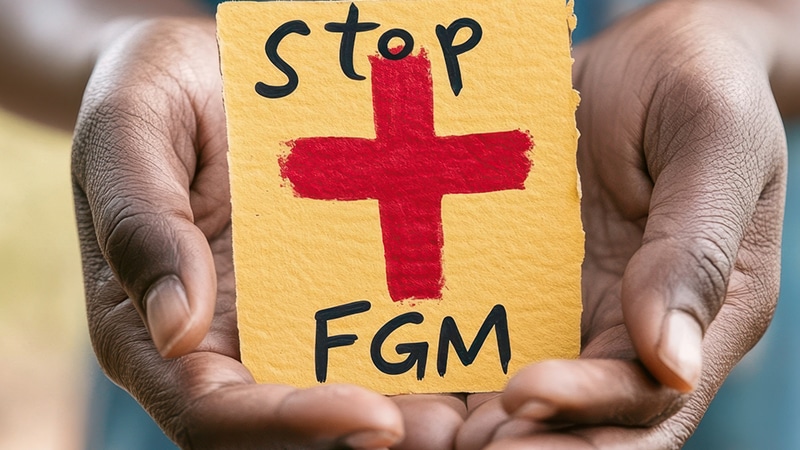Two popular gay dating platforms removed from app stores in China – BBC

Report on the Removal of LGBTQ+ Applications in China and Implications for Sustainable Development Goals
1.0 Introduction and Executive Summary
This report details the removal of two prominent LGBTQ+ dating applications, Blued and Finka, from Apple’s App Store in China. The action was taken in compliance with a directive from the Cyberspace Administration of China. This development raises significant concerns regarding China’s commitment to the United Nations Sustainable Development Goals (SDGs), particularly those concerning equality, justice, health, and institutional integrity.
- Event: Apple Inc. confirmed the removal of the Blued and Finka applications from its China-specific App Store.
- Cause: Compliance with a direct order from the Cyberspace Administration of China.
- Impact: The action curtails access to digital community spaces for LGBTQ+ individuals, directly impacting progress on several SDGs.
2.0 Incident Analysis and Context
The removal of these applications is not an isolated event but part of a broader pattern of tightening internet regulations and pressure on minority groups within the country. Understanding this context is crucial for assessing the impact on sustainable development.
2.1 Key Developments
- Corporate Compliance: An Apple spokesperson confirmed the company’s policy is to adhere to the laws of the countries in which it operates, leading to the removal of the two apps.
- Regulatory Precedent: This action follows the removal of the Grindr app in 2022 and the implementation of new licensing rules in 2023 requiring all apps to register with the government, which the regulator stated was to “promote the standardised and healthy development of the internet industry.”
- Community Impact: Members of the LGBTQ+ community have expressed concern over the shrinking digital space for connection and community building.
2.2 Legal and Social Environment
- While homosexuality was decriminalized in China in 1997, same-sex marriage is not recognized, and social acceptance remains a challenge.
- Several prominent LGBTQ+ advocacy organizations, such as the Beijing LGBT Center, have ceased operations in recent years, indicating a shrinking space for civil society.
3.0 Implications for Sustainable Development Goals (SDGs)
The directive and subsequent removal of the applications represent a significant setback for the achievement of several core SDGs, undermining the universal pledge to “leave no one behind.”
3.1 SDG 10: Reduced Inequalities
- The action explicitly targets a specific minority group, increasing their social and digital exclusion and directly contravening the objective of reducing inequalities within and among countries.
- By removing platforms essential for community-building, the measure exacerbates the marginalization of the LGBTQ+ population.
3.2 SDG 16: Peace, Justice and Strong Institutions
- This event challenges SDG 16’s aim to ensure public access to information and protect fundamental freedoms (Target 16.10).
- The state’s directive demonstrates a weakening of institutional frameworks that should protect the rights of all citizens, regardless of sexual orientation.
- It highlights the complex role of multinational corporations in either upholding or yielding on principles of justice and human rights when faced with restrictive national laws.
3.3 SDG 3 (Good Health and Well-being) & SDG 5 (Gender Equality)
- The removal of these apps is a discriminatory act that undermines the spirit of SDG 5, which calls for an end to all forms of discrimination.
- It negatively impacts SDG 3 by dismantling digital support networks that are vital for the mental and physical well-being of LGBTQ+ individuals, who often rely on these platforms for peer support and health information.
4.0 Conclusion
The removal of the Blued and Finka apps from the Chinese App Store is more than a matter of corporate compliance; it is an action with direct and adverse consequences for sustainable development. It signifies a regression in efforts to achieve reduced inequalities (SDG 10), promote just and inclusive institutions (SDG 16), and ensure the health and well-being of all individuals (SDG 3). This development underscores the critical need for continued vigilance from the international community on the protection of digital rights and fundamental freedoms as integral components of the 2030 Agenda for Sustainable Development.
1. Which SDGs are addressed or connected to the issues highlighted in the article?
The article discusses issues related to discrimination, censorship, and the restriction of fundamental freedoms, which directly connect to several Sustainable Development Goals (SDGs). The primary SDGs addressed are:
- SDG 10: Reduced Inequalities: The core issue is the targeted removal of applications serving the LGBT community, which is a clear act of discrimination and contributes to the inequality and social exclusion of this group.
- SDG 16: Peace, Justice and Strong Institutions: The article highlights actions by a state institution (Cyberspace Administration of China) that limit public access to information and restrict fundamental freedoms. The lack of legal recognition for same-sex marriage also points to weaknesses in ensuring justice and non-discriminatory laws for all.
- SDG 5: Gender Equality: While often focused on women and girls, this goal’s principle is to end all forms of discrimination. Discrimination based on sexual orientation is intrinsically linked to broader issues of gender equality and challenging restrictive gender norms.
2. What specific targets under those SDGs can be identified based on the article’s content?
Based on the issues presented, several specific SDG targets are relevant:
SDG 10: Reduced Inequalities
- Target 10.2: “By 2030, empower and promote the social, economic and political inclusion of all, irrespective of age, sex, disability, race, ethnicity, origin, religion or economic or other status.” The removal of apps like Blued and Finka directly undermines the social inclusion of the LGBT community, which falls under “other status.” These apps serve as platforms for social connection and community building.
- Target 10.3: “Ensure equal opportunity and reduce inequalities of outcome, including by eliminating discriminatory laws, policies and practices…” The order from the Cyberspace Administration of China to remove the apps is a discriminatory policy. The article also notes that “same-sex marriages remain unrecognised,” which is a discriminatory law.
SDG 16: Peace, Justice and Strong Institutions
- Target 16.10: “Ensure public access to information and protect fundamental freedoms, in accordance with national legislation and international agreements.” The Chinese government’s actions, including the “crackdown on content it viewed as illegal and inappropriate” and requiring licenses for all apps, directly restrict public access to information and platforms for free expression and association.
- Target 16.b: “Promote and enforce non-discriminatory laws and policies for sustainable development.” The policy leading to the removal of gay dating apps is a clear example of a discriminatory policy being enforced, which is contrary to this target.
SDG 5: Gender Equality
- Target 5.1: “End all forms of discrimination against all women and girls everywhere.” This target’s principle can be extended to include discrimination based on sexual orientation. The actions described in the article represent a form of discrimination against a specific community.
3. Are there any indicators mentioned or implied in the article that can be used to measure progress towards the identified targets?
The article does not mention official SDG indicators by their code, but it provides concrete information that can serve as qualitative and quantitative indicators to measure the lack of progress towards the identified targets:
Indicators for SDG 10 (Reduced Inequalities)
- Existence of discriminatory policies: The “order from the Cyberspace Administration of China” to remove the apps is a direct indicator of a discriminatory policy in practice.
- Legal recognition of relationships: The statement that “same-sex marriages remain unrecognised” is a clear indicator of legal inequality.
- Closure of civil society organizations: The mention that advocacy groups like “the Beijing LGBT Center and the ShanghaiPride, have ceased operations” indicates a shrinking space for civil society to advocate for equality.
Indicators for SDG 16 (Peace, Justice and Strong Institutions)
- Number of applications removed by government order: The article explicitly names Blued, Finka, and Grindr as apps removed from app stores following government directives. This can be quantified.
- Implementation of restrictive internet regulations: The “new rules requiring all apps serving domestic users to register for licenses” is an indicator of policies that can limit access to information and fundamental freedoms.
Indicators for SDG 5 (Gender Equality)
- Prevalence of laws and policies that discriminate based on sexual orientation: The combination of the app removal policy and the lack of marriage equality serves as an indicator that discriminatory legal and policy frameworks are in place.
4. Table of SDGs, Targets, and Indicators
| SDGs | Targets | Indicators Identified in the Article |
|---|---|---|
| SDG 10: Reduced Inequalities |
10.2: Promote social inclusion of all.
10.3: Ensure equal opportunity and eliminate discriminatory laws and policies. |
|
| SDG 16: Peace, Justice and Strong Institutions |
16.10: Ensure public access to information and protect fundamental freedoms.
16.b: Promote and enforce non-discriminatory laws and policies. |
|
| SDG 5: Gender Equality | 5.1: End all forms of discrimination. |
|
Source: bbc.com
What is Your Reaction?
 Like
0
Like
0
 Dislike
0
Dislike
0
 Love
0
Love
0
 Funny
0
Funny
0
 Angry
0
Angry
0
 Sad
0
Sad
0
 Wow
0
Wow
0













































































